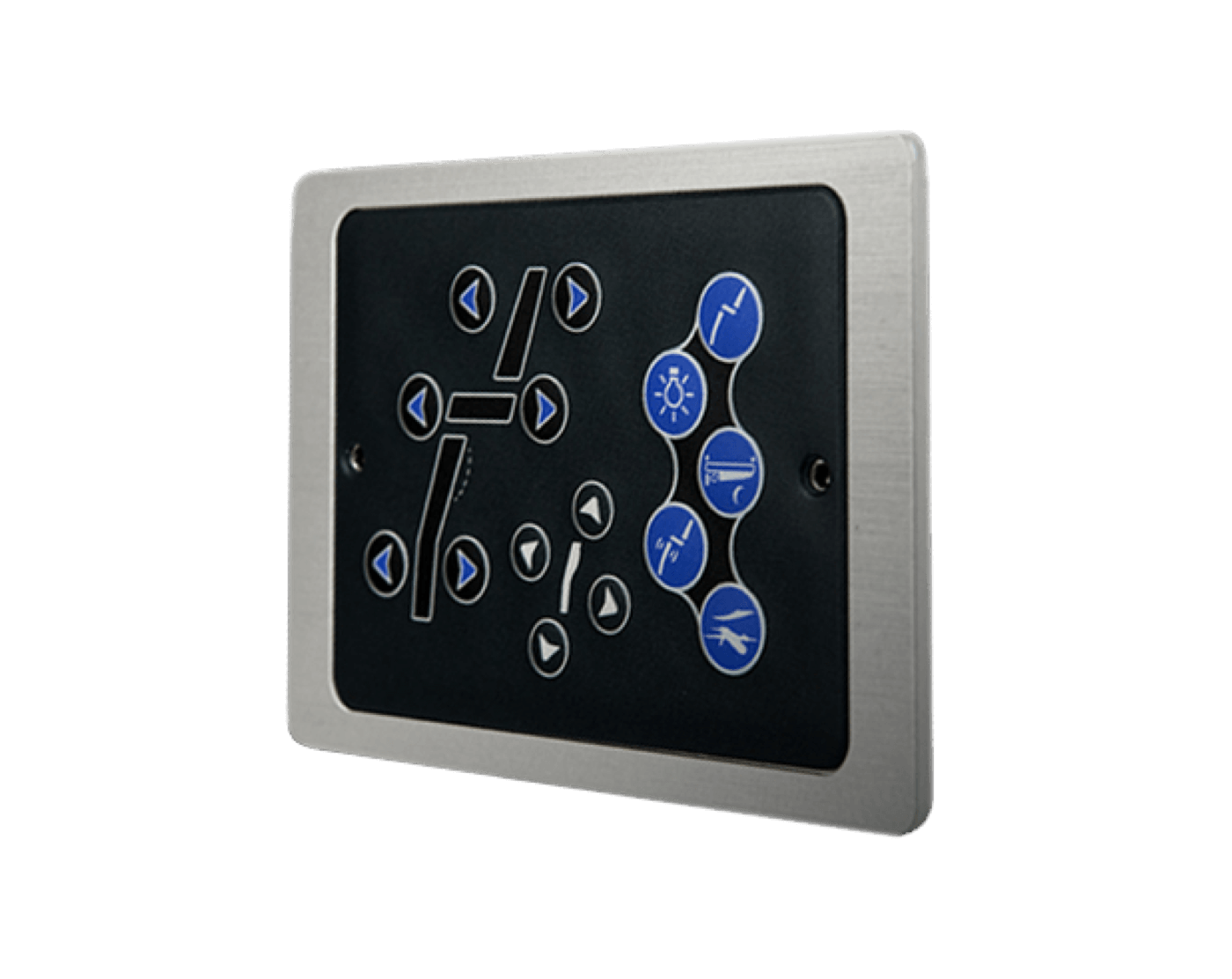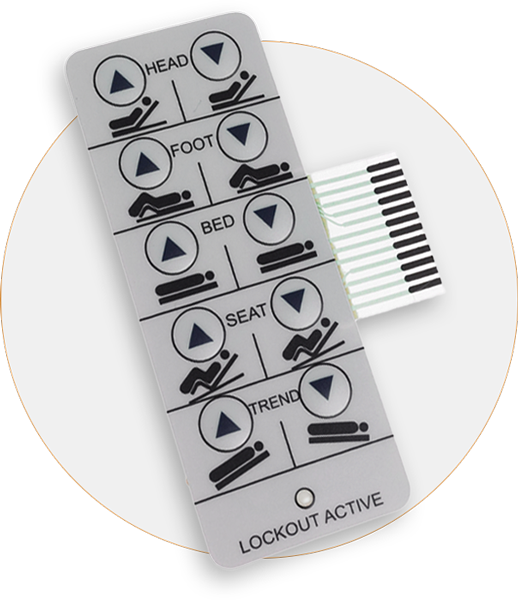Exploring the Conveniences of Membrane Layer Changes for Modern Electronics
The exploration of membrane buttons in modern electronic gadgets supplies a fascinating point of view on their myriad advantages, especially in terms of design flexibility, toughness, and cost-effectiveness. As sectors proceed to evolve, the role of membrane buttons in boosting customer experience and functional effectiveness warrants better examination.
Advantages of Membrane Buttons
Membrane layer buttons are increasingly favored in contemporary electronics because of their many benefits. Among the key advantages is their small style, which enables for space-efficient integration into numerous tools. This slim account not only saves space but also adds to the general visual appeal of electronic items.
An additional benefit is their sturdiness. Membrane switches are normally immune to moisture, dirt, and pollutants, making them excellent for use in atmospheres where exposure to extreme problems is a problem. This resistance extends the life-span of the buttons, decreasing the need for regular substitutes and upkeep.
Furthermore, membrane layer changes deal superb tactile feedback, improving user experience. The responsive reaction is frequently made to offer a satisfying experience upon activation, which can boost customer satisfaction and performance.
Additionally, the production process of membrane switches is cost-efficient, enabling reduced manufacturing prices contrasted to standard mechanical switches. This cost makes them ideal for a large range of applications, from customer electronic devices to industrial machinery.
Layout Flexibility and Modification
The style flexibility and customization alternatives supplied by membrane changes better boost their allure in contemporary electronics. These buttons can be tailored to meet details visual and functional requirements, permitting producers to create devices that align carefully with brand identity and individual preferences. With different alternatives in regards to colors, shapes, and dimensions, membrane layer switches can effortlessly integrate right into varied product designs, whether for consumer electronics, commercial applications, or clinical tools.
In addition, the capacity to integrate graphics and symbols directly onto the switch surface improves functionality while minimizing the demand for added labeling. This integration not just simplifies manufacturing processes yet additionally adds to a sleeker general appearance. The style can be more personalized with functions such as backlighting, responsive responses, and multi-layer buildings, offering boosted user interaction.

Longevity and Environmental Resistance

In addition, membrane layer switches can be engineered to be chemically immune, making them suitable for applications in commercial environments where exposure to solvents and cleaning up representatives is typical. The encapsulation of digital elements within the membrane layer framework offers added security against ecological stress and anxieties, guaranteeing reliable efficiency even in tough conditions.
In enhancement to physical toughness, membrane switches display superb resistance to UV light, description preventing degradation and discoloration in time (membrane switch). This characteristic is especially helpful for outside applications, where extended exposure to sunshine can endanger various other button kinds
Inevitably, the longevity and ecological resistance of membrane switches make them an ideal selection for a large range of modern electronic tools, from clinical equipment to customer electronics, ensuring regular functionality and customer fulfillment across numerous applications.
Cost-Effectiveness in Manufacturing
Cost-effectiveness in manufacturing is a significant benefit of membrane switches, making them a favored option for makers in numerous industries. The production procedure of membrane layer switches normally involves fewer products contrasted to conventional switches, which reduces resources expenses. This streamlined production process not only conserves money but likewise lessens waste, straightening with contemporary sustainability objectives.
Additionally, membrane switches can be generated making use of automated strategies, enabling high-volume outcome with lowered labor costs. The combination of sophisticated printing innovations further boosts effectiveness, making it possible for suppliers to attain complex designs and functionalities without sustaining significant additional expenditures. This scalability guarantees that manufacturing can adjust to changing market needs without endangering quality or enhancing prices.

Furthermore, the light-weight nature of membrane layer switches over adds to cost savings in shipping and handling, in addition to in the general style of digital gadgets. By removing cumbersome parts, suppliers can optimize the overall item design, thereby enhancing market competition. On the whole, the cost-effectiveness of membrane layer switches over not just advantages suppliers financially yet additionally promotes technology and quick item growth in the vibrant landscape explanation of contemporary electronics.
Applications in Different Industries
Flexibility stands apart as a trademark of membrane switches, permitting them to find applications across a large range of markets. In the medical care sector, these buttons are integral to clinical devices, offering user-friendly user interfaces for tools like mixture pumps and analysis machines. Their resistance to wetness and very easy cleaning make them perfect for atmospheres requiring rigorous hygiene criteria.
In the auto industry, membrane layer switches contribute to the performance of dashboards and control panels, offering a smooth, modern-day look while ensuring sturdiness versus severe conditions. Their lightweight style likewise sustains total vehicle effectiveness.

In addition, commercial machinery uses membrane switches for functional controls. Their robust nature and adjustable functions deal with the certain needs of diverse applications.
Conclusion
In conclusion, membrane layer changes offer substantial advantages for modern-day electronic devices, including layout flexibility, durability, and cost-effectiveness. membrane switch. Their adjustable features and resistance to environmental variables make them appropriate for a wide variety of applications across numerous industries. As technological demands remain to evolve, the convenience and effectiveness of membrane switches over placement them as a vital element in improving customer experience and driving development within the affordable landscape of digital devices